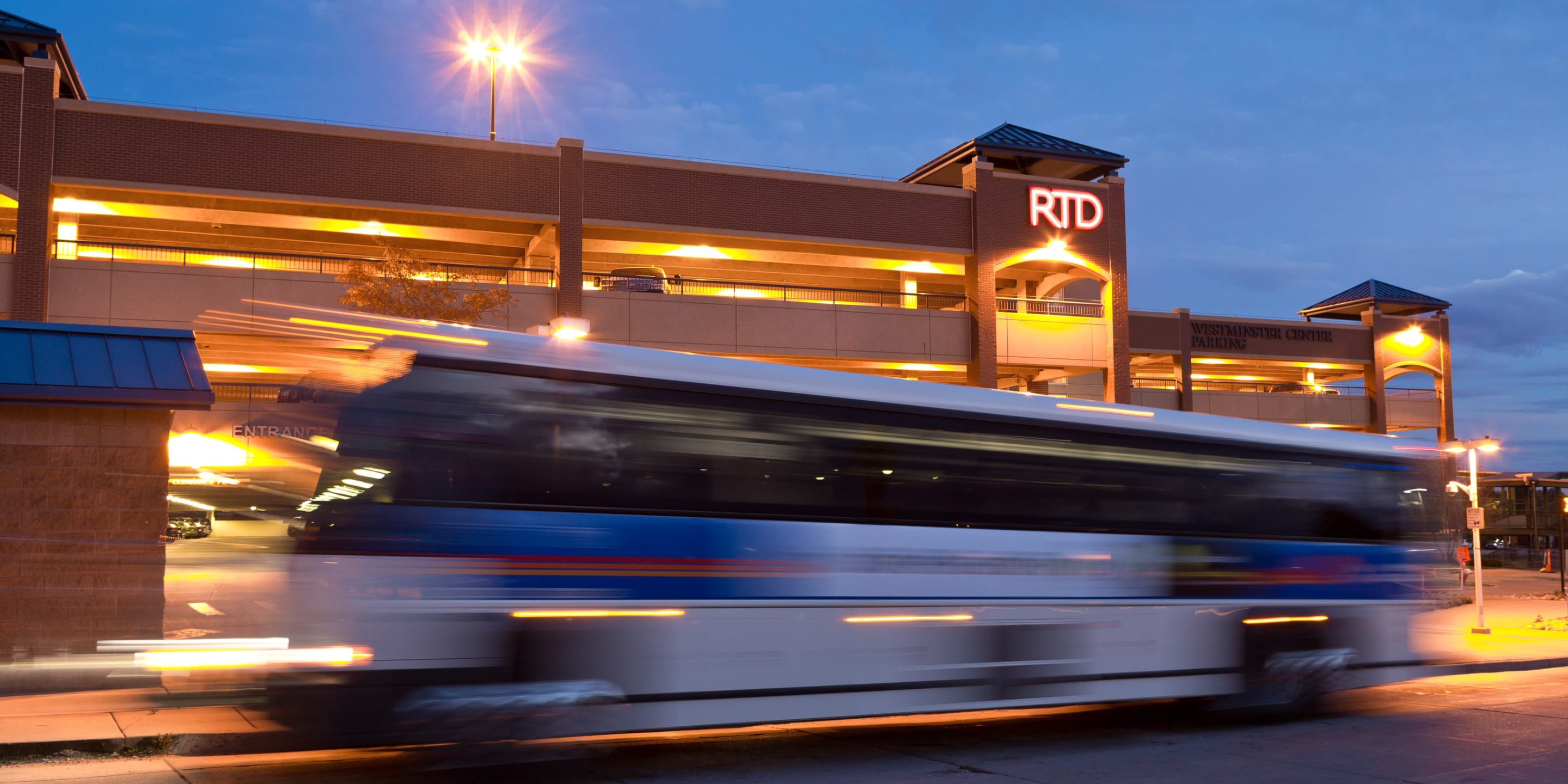
Federal grant funds preliminary RTD study of eight Park-n-Rides
RTD has initiated a preliminary study of eight Park-n-Rides in the district that have low parking usage and might better serve the public if converted to other uses, such as affordable housing. The project is being made possible by a $400,000 technical assistance grant the agency received that is administered by the U.S. Department of Transportation’s Build America Bureau (BAB).
RTD owns dozens of Park-n-Rides, and the agency’s Transit-Oriented Development (TOD) team has done extensive work to evaluate them for use and basic development feasibility. For example, in early 2024, the team identified 16 Park-n-Rides that hold joint development potential and analyzed three of them in detail in 2025. Through the BAB grant, the TOD team has contracted with AECOM to expand its work plan, covering eight stations at once, and to consider financing options such as those available through the Transportation Infrastructure Finance and Innovation Act (TIFIA).
“RTD owns a good amount of land, and a lot of it is underutilized for parking,” observed Transit-Oriented Development Manager Chessy Brady. “There is a lot of interest in affordable housing right now from the state, jurisdictions, and developers. RTD needs to determine if we can remove empty parking spaces and replace them with homes for low-income residents, who then also will be transit customers. Because the land that we’re focused on is at stations, it all has excellent transit access. It’s a win-win.”
While no development is currently planned at these locations, when the project concludes toward the end of 2026, RTD expects to have a full understanding of transit parking needs, neighborhood context, development feasibility, infrastructure needs, TIFIA potential, and next steps for each location. The station Park-n-Rides selected for study are 41st•Fox, Aurora Metro Center, Belleview, County Line, Colorado, Federal Center, Littleton•Downtown, and Littleton•Mineral.
The type of review the consultant team will conduct has previously been done on a smaller scale, Brady said, and not as systematically as will occur during this project. When a developer has shown interest in a parcel, for example, that site has been evaluated individually through the agency’s unsolicited proposal procedure for joint development.
With the Legislature having changed the law last year so that RTD can discount land at its discretion, and with the Board of Directors having updated the agency’s Equitable TOD Policy in June “to be very generous in reducing ground lease rents in order to encourage affordable housing, particularly housing that is very deeply affordable, or also to create accessible units for people with disabilities,” Brady said, “the Board’s on board. The state’s on board. Most of the jurisdictions are on board.
“RTD needs to make sure that we’re doing our due diligence so that we have enough parking spaces now and in the future to support the transit system, and also to use our land wisely to build ridership and to be a partner in the economic health of the region.”